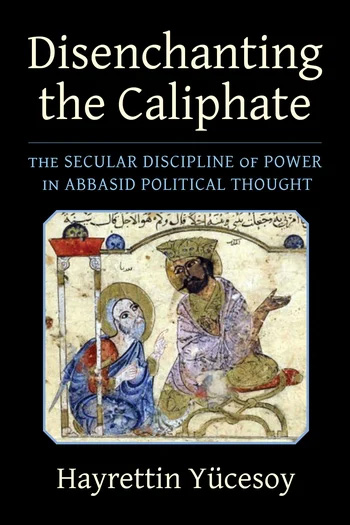The political thought of Muslim societies is all too often defined in religious terms, in which the writings of clerics are seen as representative and ideas about governance are treated as an extension of commentary on sacred texts. “Disenchanting the Caliphate” offers a groundbreaking new account of political discourse in Islamic history by examining Abbasid imperial practice, illuminating the emergence and influence of a vibrant secular tradition.
Closely reading key eighth-century texts, Hayrettin Yücesoy argues that the ulema’s discourse of religious governance and the political thought of lay intellectuals diverged during this foundational period, with enduring consequences. He traces how notions of good governance and reflections on prudent statecraft arose among cosmopolitan literati who envisioned governing as an art. Competent in nonreligious branches of knowledge and trained in administrative professions, these belletrists articulated and defended secular political practices, reimagining the caliphal realm as politically constituted rather than natural. They sought to improve administrative efficiency and bolster state control for an empire made up of diverse cultures. Their ideas about moral cultivation, temporal reasoning, and governmental rationality endured for centuries as a counterpoint to religious rulership. Drawing on this history, Yücesoy critiques the concept of “Islamic political thought,” calling for decolonizing debates about “secular” and “religious” politics.
Theoretically rich and historically grounded, “Disenchanting the Caliphate” is an insightful and provocative reconsideration of key strands of political discourse in the intellectual history of Muslim societies.
About the author
Hayrettin Yücesoy is associate professor in the Department of Jewish, Islamic and Middle Eastern Studies in Arts & Sciences at Washington University in St. Louis. His books include “Messianic Beliefs and Imperial Politics in Medieval Islam: The Abbasid Caliphate in the Early Ninth Century” and “The Development of Sunni Political Thought: The Formative Period” (the latter published in Arabic).
